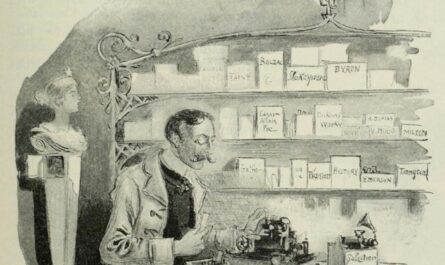We automatically form opinions. Sometimes they are based on personal anecdotes, other times they stem from political allegiances; most often they are based on a snap judgment more than any true knowledge of the issues involved. We hold to these opinions, rarely seeking to deepen our understanding or exercise the discipline necessary to form a fleshed out and coherent argument. We react instead of reflecting and responding. This is irritating in personal conversation, but it can become dangerous when we start to hold opinions on public policies and issues without doing any work to form or even follow up on our own opinions. What is the difference between a reaction and an informed opinion? Charlie Munger, the longtime business partner of Warren Buffet, offers recommendations as to the work required to hold an opinion.
“The ability to destroy your ideas rapidly instead of slowly when the occasion is right is one of the most valuable things. You have to work hard on it. Ask yourself what are the arguments on the other side. It’s bad to have an opinion you’re proud of if you can’t state the arguments for the other side better than your opponents. This is a great mental discipline.” — Charlie Munger
This ability to adjust your expectations and understanding in light of new information is simply required to understand today’s world. Facts change quickly and our perspectives need to accommodate this reality. Munger encourages us to actively destroy incomplete ideas – preventing them from solidifying into an identity – and seek out new information. As we learn more, we should rework and remold our ideas to reflect a more accurate understanding of the topic. Specifically, we need to study the topic’s history; follow the current conversations and dilemmas within that topic; grasp the different proposed solutions, along with their pros and cons; reflect on the potential effects of those proposed solutions; and finally, after the analysis and evaluating are complete, only then have we earned holding an opinion. During all that study and thought, questions will also pop up you’ll need to answer before you can move forward. One of the most important of these questions is, “How does the opposing argument respond?”
The most underrated way to learn your opponent’s ideas and perspectives is to study their work. Don’t be afraid of opposing ideas; explore them. You should work to understand the perspective represented; weighing the merit and quality of opposing arguments will only sharpen your thinking. Too commonly, all we see online and in the media are opponents constructing and attacking straw man arguments instead of making good faith inquiries into the more compelling opposing arguments. The solution is less time with social media or news and more time studying those ideas for yourself.
We all have influences, preferences, and convictions which can keep us from engaging with certain ideas or subjects. To hold those opinions, though, we need to expand our understanding. It’s not enough to think, believe, or vote for something simply because those around you think or vote a certain way.
All of this knowledge and searching for deeper understanding is predicated on one important value; intellectual humility. Epictetus reminds us it is impossible to learn that which we think we already know. Intellectual humility is understanding your perspective is probably flawed or incomplete in some way, and therefore holding your opinion loosely. “The work” Munger is encouraging encompasses knowing you don’t have all the answers, looking for arguments which contradict your position, weighing all the arguments, then carefully proceeding toward holding an opinion.
Munger characterized this process as “work” because it actually is work. It takes time to study the history of a topic, and research current ideas around it. Reflection and deep thought takes time. It only makes sense to advocate for or against a particular solution after you’ve done the work to hold an opinion on the topic.
Image: Man geeft een speech bij een diner (1934). F. Ockerse.




